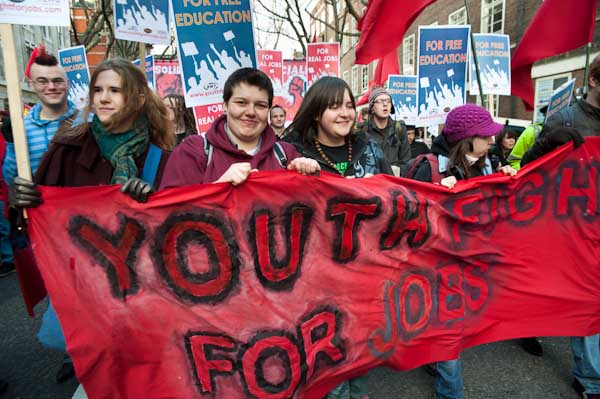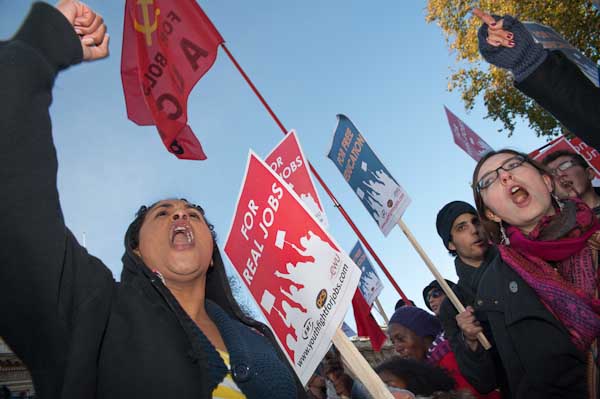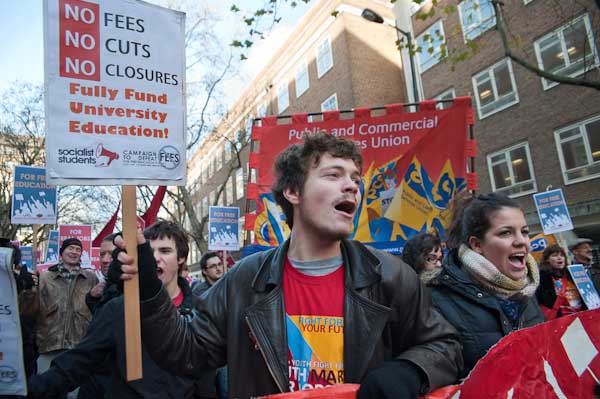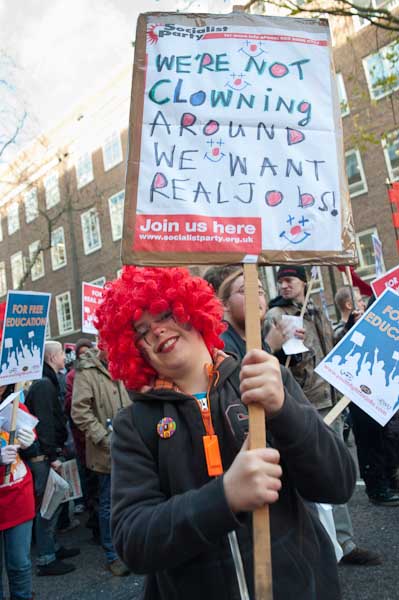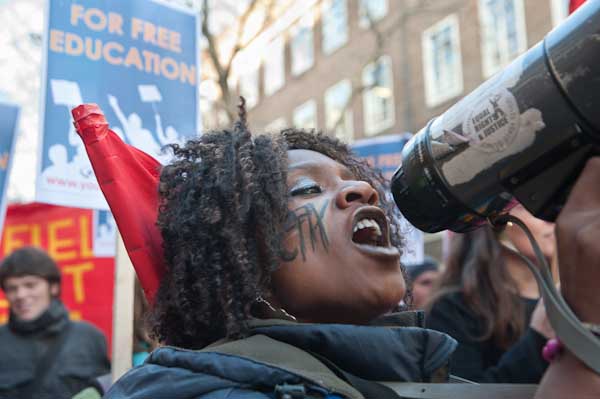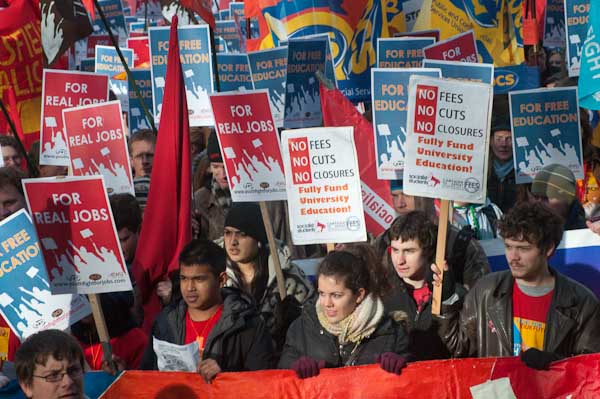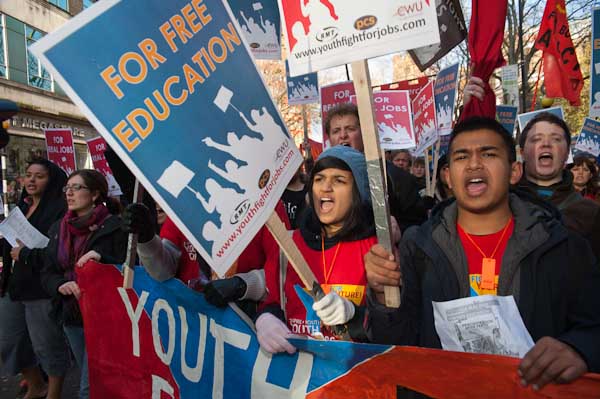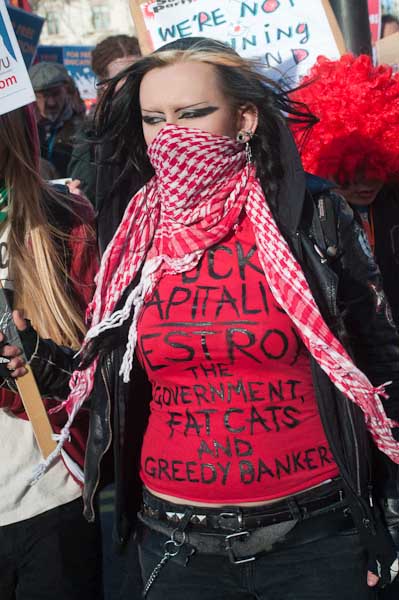Housing Emergency Protest – Downing St
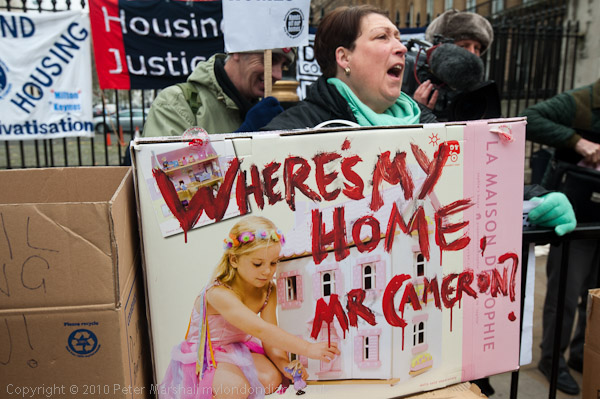
Housing has again emerged in the media as a major issue with the Starmer government’s plans to make sweeping changes to the planning system and force local authorities to build 370,000 homes a year.
Though most of the uproar now is about building on land currently categorised as Green Belt, a scheme brought in in the 1950s to stop urban sprawl around our major cities and to stop neighbour urban areas from merging. It was needed than and worked well, but considerable areas are now ‘grey belt’ – “disused carparks and dreary wasteland” – and could be used for housing without any real loss of amenity. But what we really need is more appropriate actually affordable housing in our cities – rather than the expensive properties largely built for foreign investors and often kept empty all or most of the time now being built.
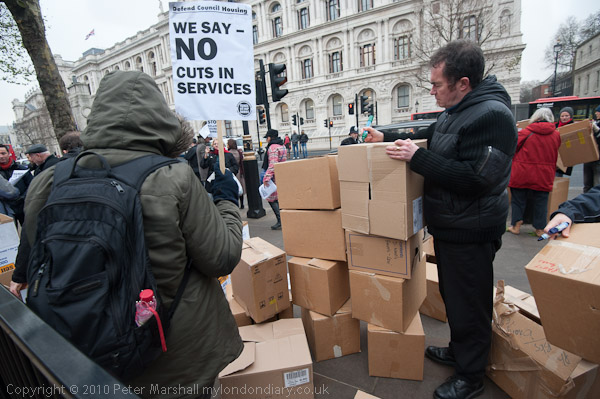
But although much of Labour’s policy makes sense, it really seems to do little to address the real problems of housing. Even if they succeed in the ambitious plan to build 1.5 million homes during this parliament, it seems almost certain that many of these will be the wrong homes in the wrong places.
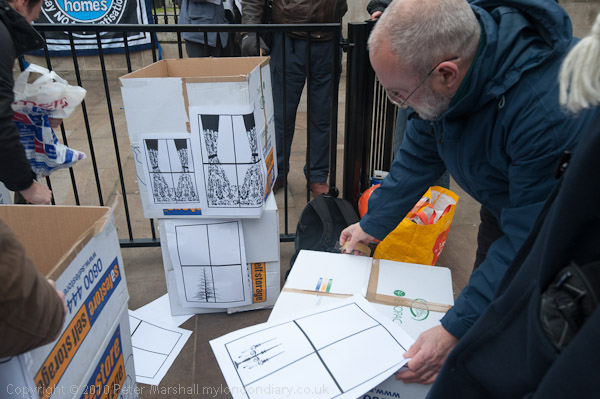
To address the real issues of housing needs more radical solutions. Building “affordable homes” will not help a great deal as most of those in housing need can’t afford them.
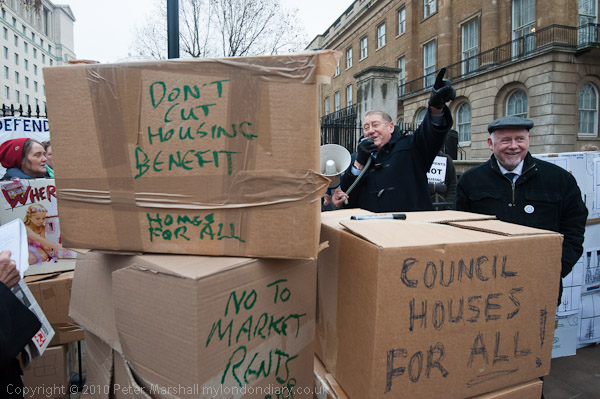
It’s not enough to say “we will prioritise social rented accommodation wherever appropriate.” We need a commitment to build more social housing and to do so across those high rent areas such as London. The 20% or 25% on new developments needs to be both dramatically increased and much more needs to be at true social rents and with an end to developers being able to excuse themselves by pleading they cannot make high enough profits.
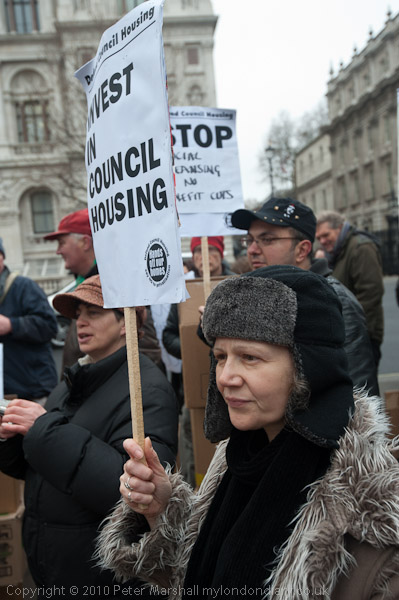
It’s not enough to say they will “support councils and housing associations to build their capacity and make a greater contribution to affordable housing supply.” We don’t need “affordable housing” but social housing.
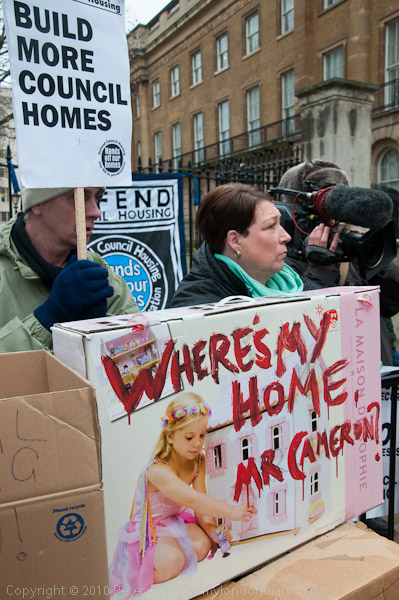
A government dedicated to improving housing for all would also need to be outlining much stronger measures to tackle rents in the private sector which have been rising largely out of control for years. Many private renters in London are now paying over half their incomes on rent, and average rents in many areas are more than the salaries of key workers such as care workers and teaching assistants.
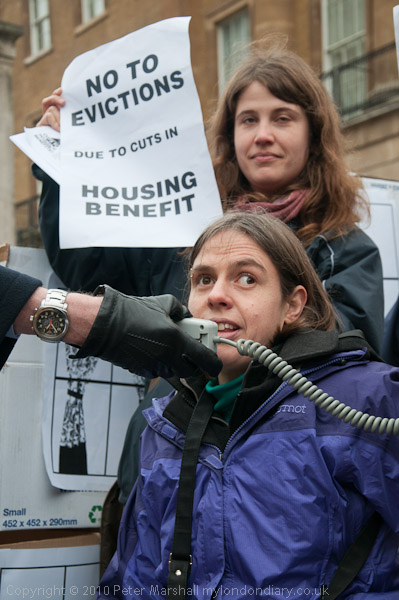
Housing benefit has acted as support for landlords and in part has fuelled rising rents, but now in most areas is at levels well below average rents. We need a new system of rent control, and also to revise many of the laws which have greatly reduced security of tenure for those in private rents and in council homes. The Renters Rights Bill is an important step in the right direction and needs to be brought in as soon as possible.
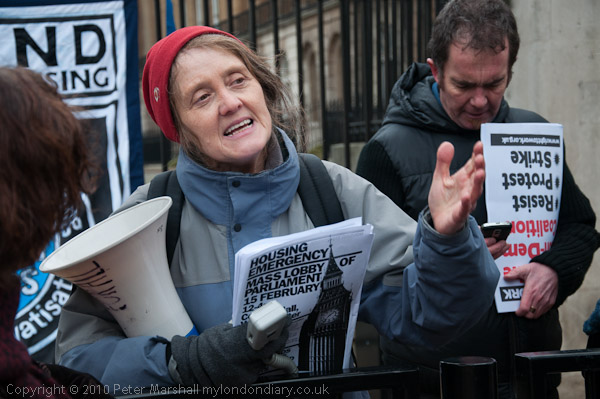
The protest in 2010 was about the coalition governments plans, most of which came into force the following year. It was disastrous for many, and the results were predictable – and profitable for landlords at all levels – including many MPs. And as the speakers said 14 years ago “the way to combat high rents is to introduce rent caps rather than to attack tenants, and that we need to build more social housing and provide security of tenure to create and sustain diverse and thriving communities.“
More about the protest on My London Diary at Housing Emergency Protest.
Flickr – Facebook – My London Diary – Hull Photos – Lea Valley – Paris
London’s Industrial Heritage – London Photos
All photographs on this page are copyright © Peter Marshall.
Contact me to buy prints or licence to reproduce.
